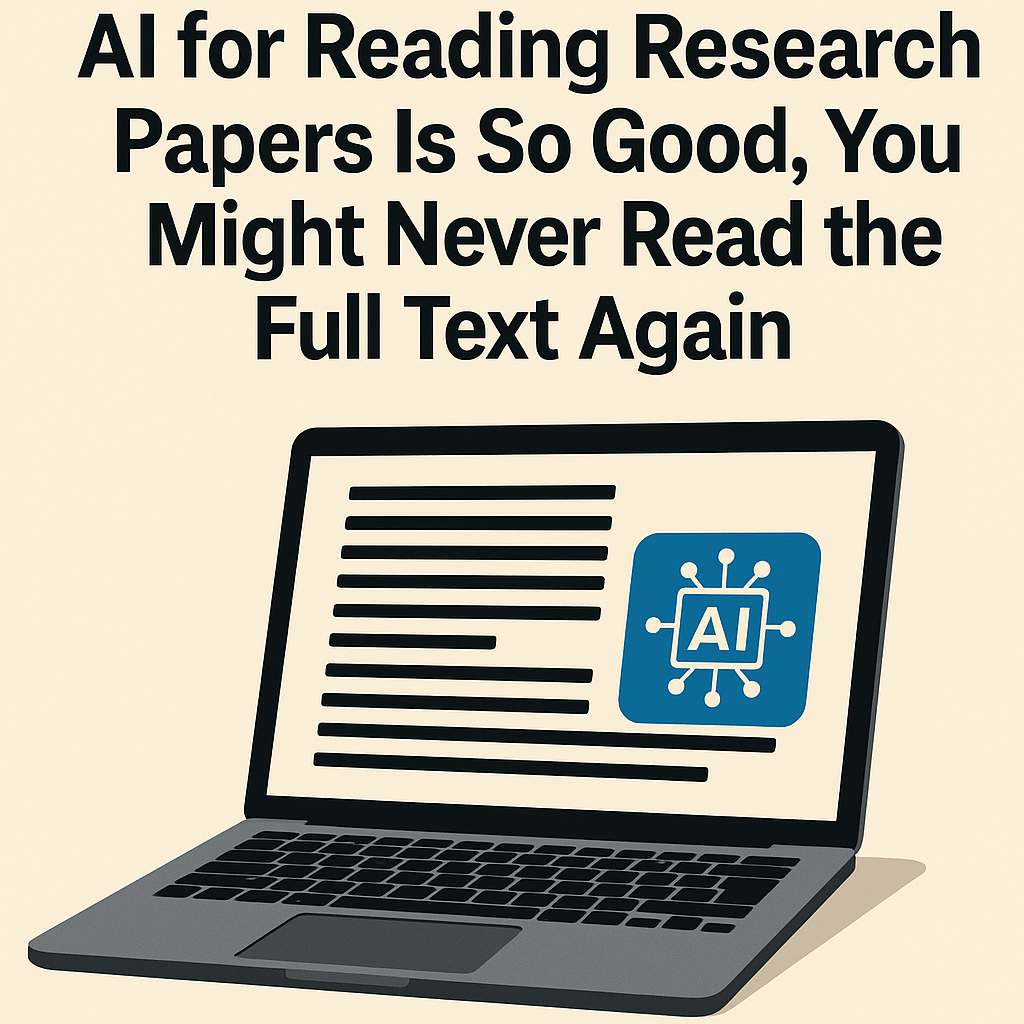
In a world flooded with academic papers, it’s becoming harder—and more unrealistic—than ever to stay on top of the latest research. For many scholars, students, and professionals, the traditional model of reading full-length papers is breaking down under the sheer weight of publication volume.
That’s where AI for reading research papers comes in.
Thanks to advancements in machine learning and natural language processing, tools like SciSummary and other article reader AI platforms now offer the ability to summarize dense scientific PDFs in seconds. And they’re not just simplifying—they’re excelling. So much so that more and more researchers are asking a bold question:
Do I even need to read the full paper anymore?
The Rise of AI-Powered Research Reading
What used to take hours of focused reading can now be condensed into a couple of well-structured paragraphs generated by an AI. These summaries include a paper’s objective, methodology, key findings, and even limitations—all delivered faster than any human could process them manually.
Many of the best AI academic research tools go beyond summarizing. They allow for question-based interaction, so users can query a specific section of a paper or clarify a concept mid-summary. This interactivity, offered through platforms like AI chat for scientific PDFs, is radically changing how we engage with academic literature.
Is This the End of Deep Reading?
The convenience of AI for academic research has sparked debate. Critics argue that relying too heavily on AI shortcuts scholarly engagement, removing the nuance that comes from line-by-line analysis. But proponents believe this is simply a more efficient and scalable way to engage with research.
With tools like AI paper reviewer or AI for scholarly research, the focus shifts from decoding complex texts to thinking critically about their implications. In other words, AI handles the noise—researchers can focus on the signal.
Who Benefits the Most?
This technology is proving especially helpful for:
-
Graduate students drowning in literature for thesis prep
-
Scientists trying to stay updated outside their core discipline
-
Researchers with disabilities or limited time
-
Non-native English speakers navigating complex technical language
-
Anyone needing a quick answer from a long article
The democratizing power of free AI tools for researchers means that you don’t have to be a tenured academic with unlimited time to contribute meaningfully to your field.
The Real Revolution: Access and Speed
At its core, this isn’t just about convenience. It’s about reimagining access to knowledge. With smart AI for paper summarization, it’s possible to get a distilled version of a new study minutes after it’s published—without needing to read every word.
This matters. Because in fast-moving fields like artificial intelligence, medicine, and climate science, speed matters just as much as accuracy. Those who harness these tools effectively will simply move faster—and further—than those who don’t.
So, Should You Stop Reading Full Papers?
Not quite. Full texts still contain valuable details, especially in methodology, limitations, and unexpected findings that AI might not fully capture (yet). But for most tasks—like literature reviews, grant applications, and cross-disciplinary scanning—AI paper review tools offer unmatched efficiency.
The smartest move? Let AI do the first pass. Then dive deeper into the papers that truly matter.
Final Thought
The days of manually slogging through PDFs are numbered. AI for academic research is here, and it’s transforming how we engage with information. Whether you use it for summaries, reviews, or searches, tools like article reader AI, AI for scholarly research, and AI chat for scientific PDFs aren’t just useful—they’re becoming necessary.
You may not stop reading full papers entirely—but you’ll definitely stop reading them the old way.